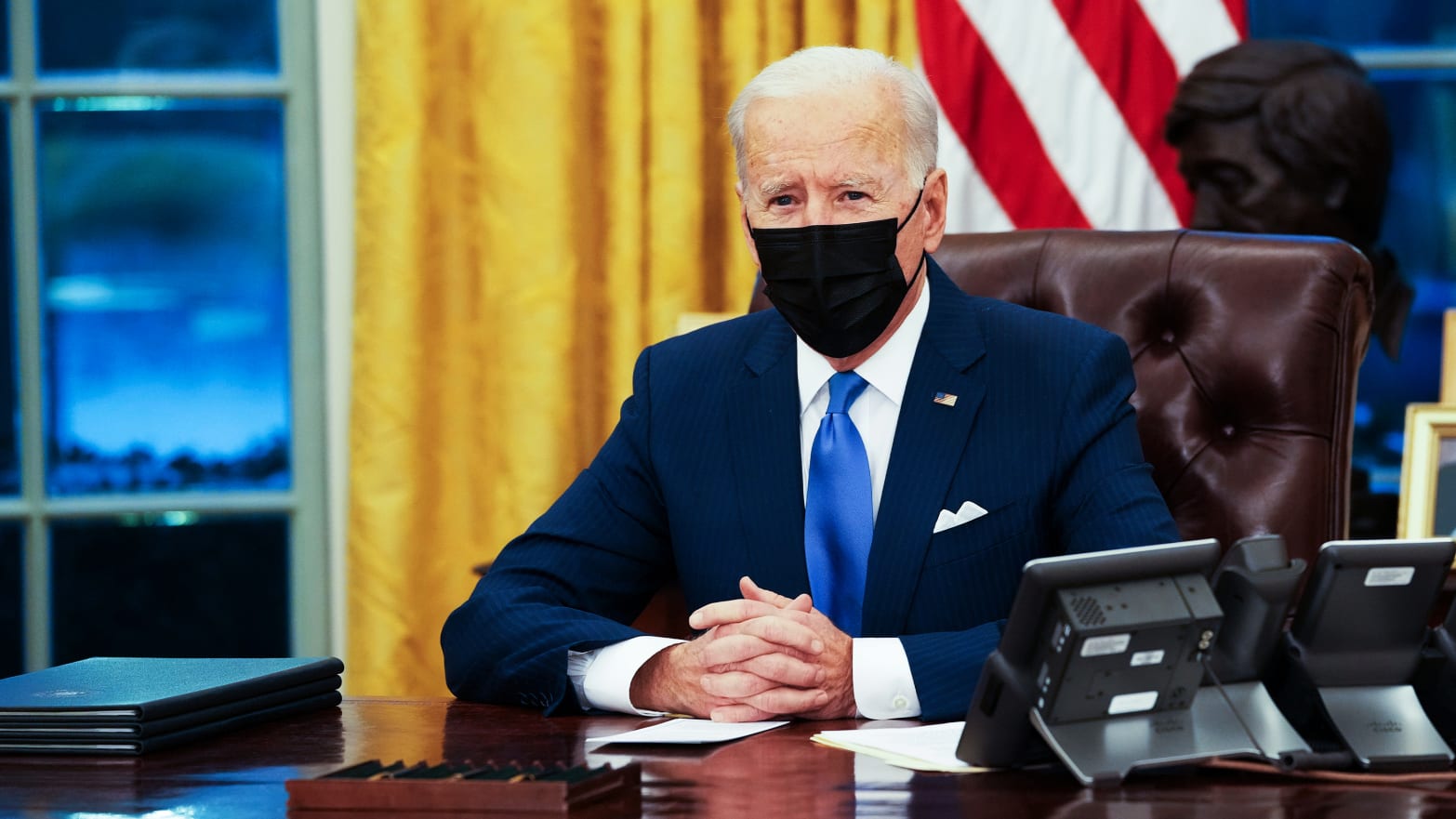Untreated broken bones. Foodborne illnesses from undercooked meals. Outdoor activity limited to the hottest hours of the day, when temperatures regularly hit triple digits.
Pandemic-era limitations on the ability of migrants to seek asylum in the United States have been widely criticized for their political motivations. But the alleged conditions at a government-run facility holding unaccompanied minors are raising questions about whether the United States is capable of safely housing even the few children who are currently allowed to enter the country.
“Based upon my direct observations and experience working since 2005 as an attorney who primarily represents immigrants detained in Texas, I find the conditions at Pecos among the harshest and most restrictive of any ORR or ICE facility that I have visited in my career,” said Jonathan Ryan, president and CEO of immigrant-rights group RAICES.
The facility in question is the Pecos Emergency Intake Site operated by the Office of Refugee Resettlement (ORR), under the umbrella of the Department of Health and Human Services. Located in a remote stretch of west Texas, Pecos serves as a custodial midpoint between U.S. Customs and Border Protection and a licensed ORR shelter.
The Pecos shelter, which is not licensed by state child welfare agencies and has been constructed on a former oil worker lodge, has capacity for 2,000 migrant children, all held as a “temporary measure” as HHS works to place them in more permanent housing than the portable trailers in which they currently sleep.
The purpose of the facility, according to an announcement by HHS when Pecos was opened in April, was to ensure that unaccompanied teenage migrants “are unified with family members or other suitable sponsors in the U.S. as quickly and safely as possible.”
But according to advocates with RAICES, children are being held for as long as 90 days in the Pecos facility, far longer than the 20-day limit on holding children in immigration detention—a key standard of care under the longstanding legal agreement that dictates how children in immigrant detention are to be treated by the U.S. government.
“The reports we have received from both attorneys and clients on the conditions at Pecos are the worst we’ve ever observed,” RAICES said in a statement that called on HHS Secretary Xavier Becerra to immediately shut down Pecos. “RAICES can’t in good conscience fail to blow the whistle.”
Pecos was created to help ease the logistical and humanitarian burden caused by an influx of undocumented minors seeking to enter the United States—essentially the only migrants allowed into the country under the continued enforcement of Title 42, a decades-old provision of U.S. law allowing the rapid deportation of any non-citizens who may pose a health risk to the United States.
The provision was enacted under President Donald Trump in March 2020 in the name of halting the spread of the novel coronavirus, and was reauthorized last week despite increasing skepticism from epidemiologists and physicians that the authority is of any public health benefit.
Last week, a group of civil rights organizations renewed a Trump-era legal challenge to the Title 42 expulsions after negotiations with the Biden administration to halt the policy failed, calling the deportations a “violation of longstanding immigration statutes requiring that asylum seekers receive a full and fair proceeding to determine their right to protection in the United States.”
“We gave the Biden administration more than enough time to fix any problems left behind by the Trump administration, but it has left us no choice but to return to court,” said Lee Gelernt, deputy director of the ACLU’s Immigrants' Rights Project and lead attorney on the case. “Families’ lives are at stake.”
Noah Gottschalk, the global policy lead for Oxfam America, said the Biden administration “knows full well” that Title 42 is doing little to halt the spread of the coronavirus—American citizens, after all, are doing more than their part—and accused the White House of “choosing to treat refugees like political pawns.”
The Biden administration has insisted that Title 42 “is a public health measure and not a tool of immigration enforcement,” according to one White House official. But the unhealthy conditions at Pecos observed by advocates and attorneys raise the question of whether the U.S. government is able to ensure the health of any migrants in its care, pandemic or not.
Even in the history of poor conditions for children in detention centers—which medical experts, human rights advocates and immigration attorneys have said for years is a dangerous practice with potentially lifelong consequences—the conditions in Pecos stand out.
According to attorneys working with children at Pecos, some of those held at the facility have complained of gastric distress after being fed undercooked food, with limited access to medical treatment for conditions ranging from broken bones to mental illness and intellectual disability. And according to RAICES, roughly 40 percent of the children at Pecos report having waited for more than a month at the temporary facility, with several being held there for longer than 90 days.
Even for healthy children, life at the facility is often stultifying, with outdoor exercise limited to a vast stretch of asphalt with little shade from the summer sun. On Sunday, temperatures in Pecos reached 103 degrees.
The White House referred The Daily Beast to HHS, which said that the department is “continuously working to improve the conditions and services required to safely care for children” at Pecos and other facilities.
“Currently, children at the Emergency Intake Site at Pecos meet with a case manager weekly and we have close to 80 case managers on site and over 100 remote case managers working with the children,” a department spokesperson said.
The department’s Office of Inspector General announced an investigation into similar reports at a sister intake shelter last week after staff “raised concerns about the quality of case management provided there, and its negative impact on children's safety and well-being.”
—Updated at 1:35 p.m. on August 9, 2021 with comment from HHS.

